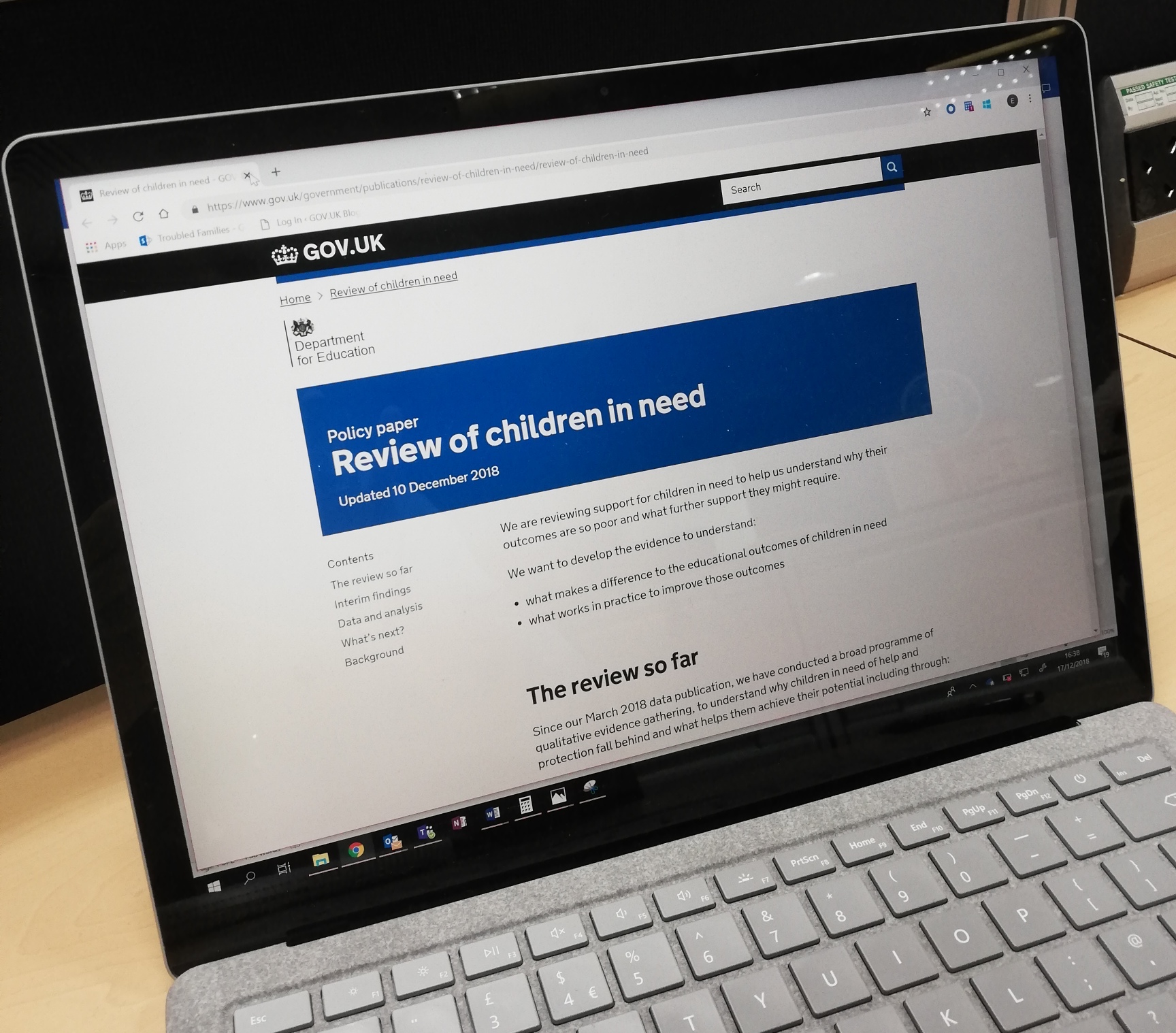
Children in Need Review
In March 2018 the Department for Education launched a review of the support received by Children in Need - those who have involvement with children’s social care – to explore the causes behind their poor educational outcomes and what works to improve them.
Interim findings: data
Data analysis published last March showed that the average GCSE attainment of Children in Need of help and protection is nearly half that of their peers and that they often experience compounding disadvantage – with high numbers of Children in Need assessed as having Special Educational Needs (SEN) and eligible for Free School Meals.
New analysis has shown that at least 1 in 10 state school pupils had been in need at some point between 2011-12 and 2016-17 and suggests that experiencing adversity or trauma has a lasting impact on educational outcomes, beyond the point of being in need.
However, data also shows that poor outcomes are not inevitable and some Children in Need excel during their time in school. We also know that in some areas schools and children’s social care are working together to ensure Children in Need have access to the world-class education they deserve.
Interim findings: best practice
Since March we have gathered the views of school, children’s social care, third sector organisations and young people themselves on what works in supporting Children in Need. We have summarised our findings in an interim report which details what needs to be in place to support the educational outcomes of Children in Need.
Although the report focuses on Children in Need as defined in the Children Act 1989, the best practice outlined will also be useful for practitioners working with children on the cusp of children’s social care support, including early help staff. The elements needed include:
- Effective leadership to ensure agencies have shared goals, set high ambitions for Children in Need and give practitioners the space and the tools to support their long term outcomes
- Training for practitioners to ensure they understand how having experienced trauma or adversity impacts on children’s ability to engage with education
- An understanding that behaviour can be a form of communication and should be managed through evidence based behaviour management techniques
- Effective use of the assessment and planning process to ensure that educational goals are shared between agencies
- Whole school approaches which allow school staff to consider making adjustments to meet children’s specific needs and targeted multi-agency interventions
- Skilled communication with children and families and the provision of stable support for children.
- Timely information sharing between agencies and within schools which respects the agency of children and families
Innovative practice
The report outlines specific examples of innovative practice which embodies these principles. For example Operation Encompass which has helped children exposed to domestic abuse, with police swiftly alerting a school safeguarding lead of an incident by the next morning. School staff will then speak to the child that day and decide how to provide support, such as giving them time to settle or not reprimanding them for being late or missing homework.
Practitioners who work with Children in Need, including those supporting children on the edge of social care involvement, should start to implement the best practice identified in our report.
What next?
The final part of the review will consider what more government can do to equip and support practitioners to realise the change we want to see.
We will also expand on our evidence of what works to support Children in Need including through:
- funding the What Works Centre for Children’s Social Care to test innovative ways to support Children in Need, including through pilot projects co-locating social workers in schools due to launch by spring 2019
- producing, with the Education Endowment Foundation (EEF), a new analysis of the existing evidence base of EEF studies to determine the impact of interventions for Children in Need, starting by January 2019
- testing effective support for the early language and literacy of Children in Need through the Home Learning Environment trials in the North of England, running by autumn 2019
Any questions?
If you have questions about the new publication please contact the Department for Education via the email link CIN.REVIEW@education.gov.uk. We are always keen to hear about best practice - please do get in touch if you have information about innovative and effective ways to drive positive educational outcomes for Children in Need.
Ola Wojnowska
Children in Need review team
Department for Education
Leave a comment